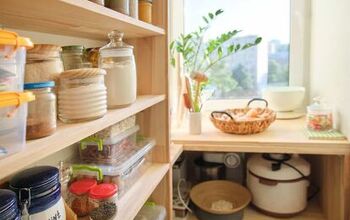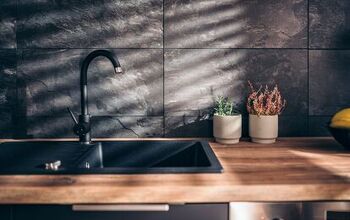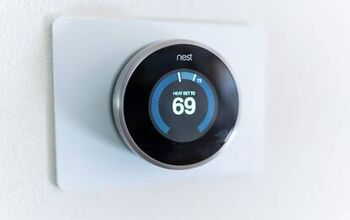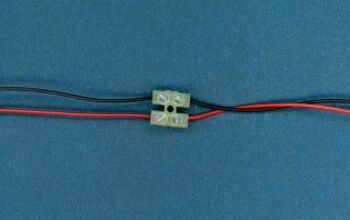What Time Of Day Should You Water A Vegetable Garden?

For those with outdoor space, the dawn of spring ushers in an exciting opportunity to plant a vegetable garden. Outdoor vegetable gardens are tons of fun to plan and execute. From selecting vegetables to mapping out the garden, and even purchasing the plants, there is never a dull moment. But when the garden is planted, the work begins. The key to a successful vegetable garden is watering it regularly. But what time of day is best to water a vegetable garden?
The early morning is the best time to water your vegetable garden. Watering the garden early allows the water to reach deep in the soil to the roots without evaporating in the afternoon sun. You can also water your vegetable garden in the early evening to avoid the sun, but watering at night may keep the leaves wet overnight, which promotes mold and disease.
Keeping your garden and the vegetables growing in it hydrated is critical to a bumper crop. While watering a garden might seem like an easy task, it isn’t as simple as pointing a hose at the garden when the plants look thirsty. If you want to ensure your vegetable garden is as successful as possible (and who doesn’t), then make sure you keep reading to learn the best time to water, and some top watering tips to help your garden thrive.
When Should You Water Your Vegetable Garden?
It might sound obvious, but the best time to water your vegetable garden is when it is getting dry. But, when you notice it is time to water, you are faced with a choice of what time of day is best. After taking everything into consideration, the best time to water a vegetable garden is in the early morning. Watering your garden in the early morning will allow all the water to soak into the soil, as the sun is not up yet to evaporate it.
The morning is also ideal for watering because while the water has a chance to get to the roots, any water left on the plants will evaporate once the sun comes up. This is important because water left lingering on leaves can cause mold and some plant diseases.
Many people choose to water their gardens in the early evening to avoid the harsh effects of the sun. This is certainly an option, but keep in mind that watering your plants in the evening might promote mold and disease growth. If, however, you live in a very dry climate, you are less likely to face these types of challenges. Therefore, watering in the evening in a dry climate might work just as well as in the morning.
In the end, you should water your garden when it needs it. Avoid over and under-watering. The best way to do this is to monitor the plants and the soil. If your plants are very dry, you should water them right away, even if it isn’t evening or morning. But sticking to a regular watering schedule is ideal. In general, vegetable gardens like about an inch of rain per week, so plan your watering according.
Watering In The Morning Versus Watering At Night
Many people water their lawns, flowers, and other plants in the evening. In fact, when water conservation measures are in effect in certain areas, it is encouraged to water at night. But when it comes to a vegetable garden, watering a night is less ideal than in the early morning.
Many vegetables and their leaves are susceptible to molds and diseases. Still, watering at night is often better than watering during the day. Just make sure when you water at night on a regular basis, you are keeping a close eye on the plants. If you notice any discoloration or change in the leaves, consider switching to morning watering.
Watering in the morning has the most benefits with the fewest drawbacks. Perhaps the only major drawback is having to get up early and water your garden. Still, this beats watering the vegetable garden in the unforgiving summer sun.
7 Watering Tips To Help A Vegetable Garden Thrive
1. Daily Watering Isn’t Always Ideal
While watering your vegetable garden in the morning is ideal, this does not mean you should water your garden every morning. In fact, it is not advised to water your garden every day. This is because you want to water thoroughly, really soaking your plants, not a light sprinkle every day.
Therefore, you should aim to water your garden thoroughly 3 or 4 times per week. This will depend on your specific climate and the weather. Remember that vegetable gardens like an average of one inch of water per week.
2. Aim For The Roots, Not The Leaves
Remember that you are not actually watering the plants, but the roots that are hidden underneath. While it might be tempting to give your beautiful plants a shower when you water them, you should know this isn’t exactly helping them. You should aim your watering efforts at the soil below. You should also keep this in mind if you install a sprinkler or irrigation system.
3. Keep The Leaves Dry To Prevent Mold And Disease
Do your best to keep the leaves of your vegetable garden dry, especially at night. So, in addition to aiming your hose at the soil, make sure you are not leaving your plants soaking wet once the sun has gone down. Naturally, if it rains, there is nothing you can do. Still, do your best to keep those leaves dry and disease-free.
4. Check The Soil Moisture Levels Regularly
The best way to understand your vegetable garden and its water needs is to closely monitor the soil. Check the moisture levels in the soil regularly. This means digging your finger down an inch or so and feeling if the soil is moist or bone dry. After a few weeks of monitoring the earth, you should have a good idea of how much more or less you should be watering your garden.
The schedule will need to be adjusted based on the weather, but once you get a rhythm down, your garden will be happy and your schedule will work like clockwork.
5. Avoid Watering When The Sun Is High
As mentioned before, you should do all you can to avoid watering your garden in the middle of the day. This is not beneficial to your garden, as much of the water may evaporate back into the air. While you might water the vegetable garden a lot, it may still be thirsty. This can also mean bad news for your water bill, as it will force you to use more water than if you water early in the morning.
6. Water The Garden Slowly To Prevent Runoff
Another way to keep your garden happy and your water bill low is to water the vegetable garden slowly. You might feel the urge to soak the garden. It is great to give the garden lots of water. But giving the garden too much water too quickly can cause the water to run off out of the garden. Over-watering can even damage the soil.
Therefore, it is best to use a slow-soaking method. Remember, your goal is to water the vegetables, not the lawn around the garden.
7. Plant Your Vegetables According To Water Needs
Try to plant your garden strategically. Not all plants require the same amount of sun and water. Therefore, plant the vegetables that require the most water near each other. This allows you to focus more attention on one area of the garden easily, ensuring the thirstiest plants get the most attention.
Wrapping Up The Best Time To Water A Vegetable Garden
Keeping your vegetable garden watered regularly is critical to its success. In addition to watering it regularly, you should also think about when you water the garden.
Watering your vegetable garden in the early morning is best. It allows most of the water to reach the roots without evaporating into the air. It also ensures the daytime sun will dry off any water left on the leaves, making it a better option than watering at night or during the day.
Related Guides:

Tom Gaffey is an expert writer who currently resides in Washington D.C. Tom has a passion for real estate and home improvement writing, as well as travel and lifestyle writing. He lived the last twelve years in Hawaii where he worked closely with luxury resorts and event planners, mastering his knowledge of aesthetics and luxury products. This is where he found his passion for home improvement and a keen interest in DIY projects. Currently, Tom resides in Washington D.C, and also working on his debut fiction novel.
More by Tom Gaffey



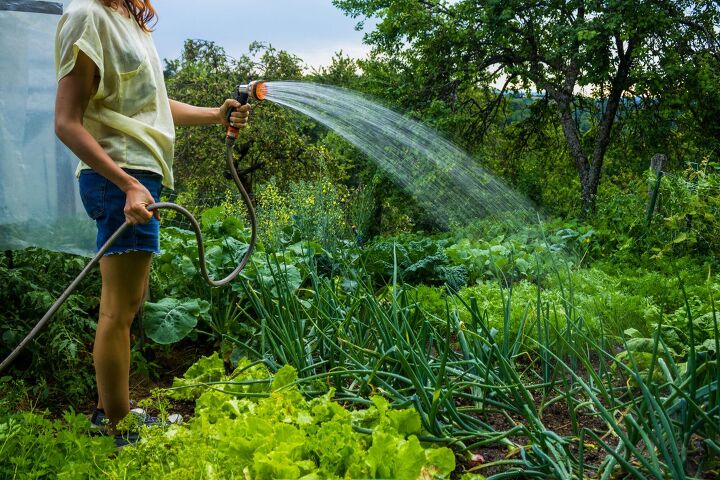






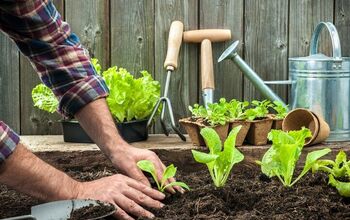
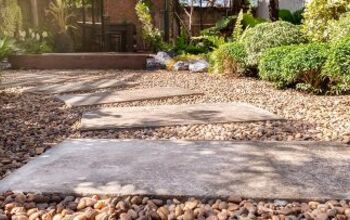
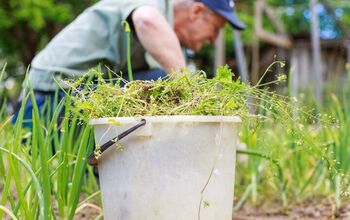

![The 10 Best Table Saws - [2022 Reviews & Buyer's Guide]](https://cdn-fastly.upgradedhome.com/media/2023/07/31/9070645/the-10-best-table-saws-2022-reviews-buyer-s-guide.jpg?size=350x220)

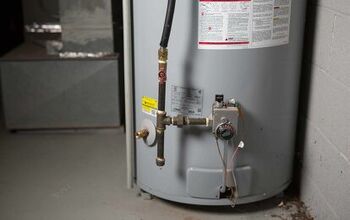
![10 Most Dangerous Neighborhoods in Baltimore [Updated]](https://cdn-fastly.upgradedhome.com/media/2023/07/31/9075655/10-most-dangerous-neighborhoods-in-baltimore-updated.jpg?size=350x220)
